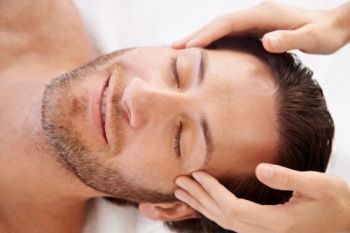Introduction
Massage therapy is more than just a relaxing experience; it is supported by scientific research that highlights its benefits for physical and 출장마사지 health. Understanding the science behind massage therapy can help business travelers appreciate its impact and make informed decisions about incorporating it into their travel routine. This article explores the scientific basis of massage therapy and its effects on business travelers.

Physiological Benefits
Scientific studies have demonstrated that massage therapy offers significant physiological benefits. Massage techniques such as deep tissue and Swedish massage improve blood circulation, which helps deliver oxygen and nutrients to muscles and tissues. This enhanced circulation supports muscle recovery and reduces stiffness, which is particularly beneficial for business travelers who experience discomfort from prolonged sitting or travel-related strain.
Stress Reduction Mechanisms
The impact of massage therapy on stress reduction is well-documented. Research shows that massage therapy can lower cortisol levels, the hormone associated with stress, and increase the production of serotonin and dopamine, neurotransmitters that promote relaxation and well-being. These biochemical changes contribute to a reduction in stress and anxiety, allowing business travelers to maintain a calm and focused state of mind.
Impact on Sleep Quality
Massage therapy also affects sleep quality, which is crucial for business travelers who may experience disruptions due to time zone changes and unfamiliar environments. Studies have shown that massage therapy can improve sleep by promoting relaxation and reducing symptoms of insomnia. The calming effects of massage help regulate the sleep-wake cycle, leading to better overall rest and improved energy levels during the day.
Cognitive and Emotional Benefits
Beyond physical and stress-related benefits, massage therapy also supports cognitive and emotional well-being. Improved mental clarity and focus are linked to reduced stress and better overall relaxation. Emotional benefits, such as enhanced mood and reduced feelings of anxiety, contribute to a more positive outlook and greater resilience in handling the demands of business travel.
Incorporating Scientific Insights into Practice
Understanding the science behind massage therapy can inform how you incorporate it into your travel routine. For example, scheduling sessions before or after particularly stressful meetings can maximize stress-reducing benefits. Choosing techniques that align with your specific needs, such as deep tissue for muscle recovery or aromatherapy for relaxation, can enhance the overall impact of massage therapy.
Conclusion
The scientific basis of massage therapy underscores its effectiveness in supporting physical, mental, and emotional well-being. By understanding the physiological and psychological benefits, business travelers can make informed decisions about incorporating massage therapy into their travel routine, ultimately enhancing their comfort, productivity, and overall experience.